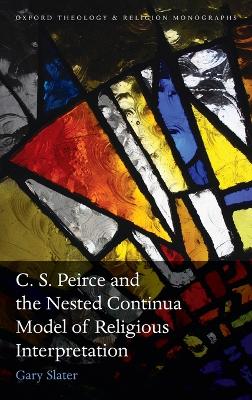Oxford Theology and Religion Monographs
1 total work
C.S. Peirce and the Nested Continua Model of Religious Interpretation
by Gary Slater
Published 26 November 2015
This study develops resources in the work of Charles S. Peirce (1839-1914) for the purposes of contemporary philosophy. It contextualizes Peirce's prevailing influences and provides greater context in relation to the currents of nineteenth-century thought. Dr Gary Slater articulates 'a nested continua model' for theological interpretation, which is indebted to Peirce's creation of 'Existential Graphs', a system of diagrams designed to provide visual representation of
the process of human reasoning. He investigates how the model can be applied by looking at recent debates in historiography. He deals respectively with Peter Ochs and Robert C. Neville as contemporary manifestations of Peircean philosophical theology. This work concludes with an assessment of the
model's theological implications.
the process of human reasoning. He investigates how the model can be applied by looking at recent debates in historiography. He deals respectively with Peter Ochs and Robert C. Neville as contemporary manifestations of Peircean philosophical theology. This work concludes with an assessment of the
model's theological implications.
